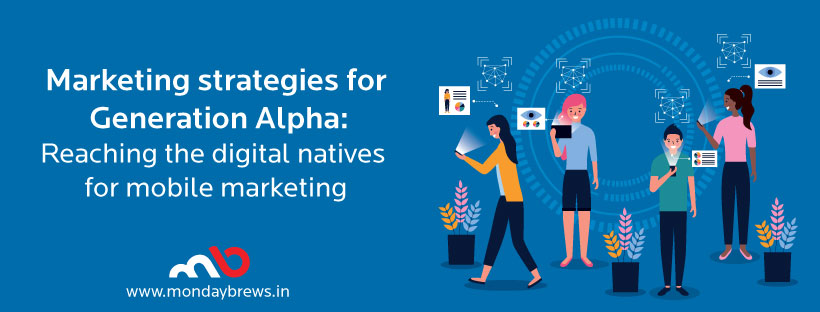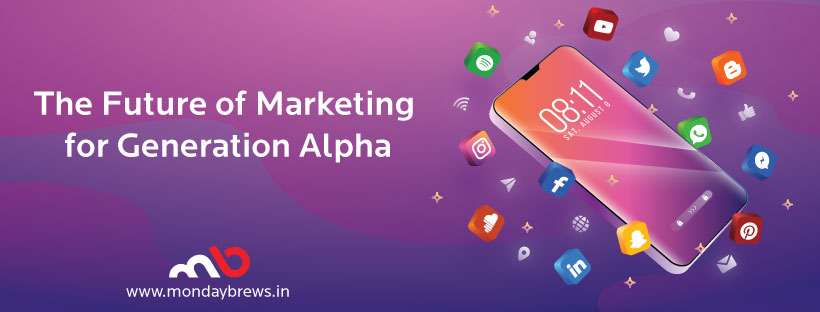
Marketing strategies for Generation Alpha:
Reaching the digital natives for mobile marketing
As digital natives, Generation Alpha is unlike any other audience that marketers have faced before. In this blog post, we will explore effective marketing strategies for Generation Alpha, including mobile marketing, trust building, and the future of marketing. How do you reach their parents, who play a critical role in purchasing decisions? In addition, the significance of diversity and inclusion will also be covered.
Understanding digital natives; the future of marketing
Generation Alpha is the newest generation of consumers, born into a world of smartphones and social media. These children have grown up with technology and have a unique set of behaviors that set them apart. As a marketer, it's important to understand their preferences to effectively reach them.
Why is it important to market to Generation Alpha?
Generation Alpha is a massive market with an estimated global population of two billion. They are growing up in a world where technology is the norm. As they continue to grow and become more independent, they will become an even more important consumer demographic.
The challenges of marketing to Generation Alpha
Marketing to Generation Alpha can be challenging because they have short attention spans and are easily bored with traditional advertising methods. They also have high expectations for personalized experiences and are quick to dismiss brands that don't meet their standards.
The impact of technology on their upbringing and behavior
Technology has had a large impact on the upbringing and behavior of Generation Alpha. They are more connected, informed, and tech-savvy than any previous generation. They are also more socially conscious and expect the brands they support to share their values.
Marketing Strategies for Generation Alpha
To effectively market to Generation Alpha, it's essential to focus on interactive and personalized experiences. This includes utilizing social media influencers and user-generated content, as well as implementing gamification and reward-based systems. Embracing technology such as virtual and augmented reality is also crucial.
Using mobile marketing to reach Generation Alpha
Leveraging the power of mobile devices is a key strategy for reaching Generation Alpha. Creating engaging video content is an essential step. Embracing virtual and augmented reality is another effective way to capture their attention and create memorable experiences.
Building trust with Generation Alpha
Building trust through transparency and authenticity is key to winning over Generation Alpha. Brands that can demonstrate their values and commitment to diversity and inclusion are more likely to gain their support.

The Future of Marketing for Generation Alpha
Marketing to Generation Alpha requires constant adaptation and experimentation. This demographic is always evolving. Brands that don't keep up with their changing behaviors and attitudes will struggle to stay relevant. Embracing emerging technologies such as AI-powered chatbots can also help brands stay ahead of the curve.
Key metrics for measuring success
To measure the success of marketing campaigns targeting Generation Alpha, it's essential to focus on engagement metrics such as likes, comments, and shares. Conversion rates and customer retention are also important indicators of success.
The importance of continuous adaptation and experimentation
Marketing to Generation Alpha requires constant adaptation and experimentation. This demographic is always evolving. Brands that don't keep up with their changing behaviors and attitudes will struggle to stay relevant.
Case studies of successful marketing campaigns targeting Generation Alpha
Several brands have successfully marketed to Generation Alpha. For example, LEGO's social media campaigns which feature user-generated content, have been highly successful. Oreo's gamification and reward-based systems have also been effective in capturing the attention of young audiences. Additionally, Nickelodeon's interactive experiences, such as their popular game app, have been a hit with Generation Alpha.
These case studies demonstrate the effectiveness of incorporating interactive experiences, user-generated content, gamification, and reward-based systems in marketing to Generation Alpha.
To conclude
Marketing to Generation Alpha presents a unique set of challenges and opportunities for brands. The impact of technology on their upbringing and behavior requires a fresh approach to marketing that incorporates interactive experiences, social media influencers, gamification, and reward-based systems. Leveraging technology, such as mobile devices, virtual and augmented reality, and AI-powered chatbots, is crucial to reaching and engaging with Generation Alpha.
Targeting Generation Alpha's parents is also critical, as parents play a significant role in purchasing decisions. Creating content that appeals to parents' values and concerns, leveraging social media to reach parents, and building trust through transparency and authenticity are all essential strategies for reaching this demographic.
Finally, marketers must remain adaptable and open to experimentation, continuously adapting strategies to fit the evolving needs and preferences of Generation Alpha. By doing so, brands can establish lifelong connections with this influential and digitally-savvy generation, paving the way for the future of marketing.
You can connect with us through our website, www.mondaybrews.in for more information and to stay up to date with the latest digital marketing news.
Get in touch with us today to learn more about our services and how we can help you create a strong brand image at
www.mondaybrews.in
